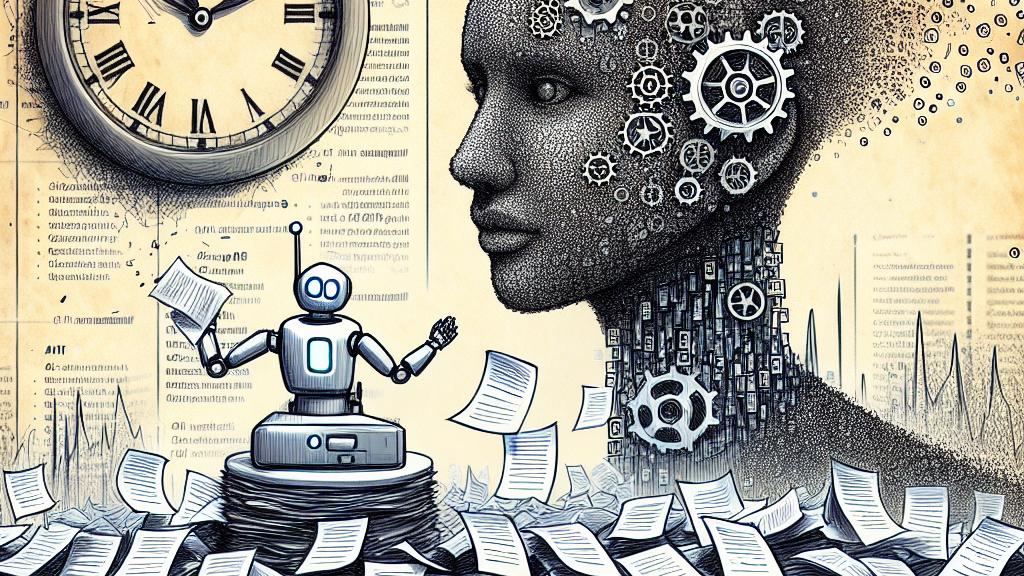Analysis of Peer Review Reports Reveals AI-Generated Content in Scientific Papers
Overview
- A startling 7-17% of peer review reports analyzed were likely generated by AI technologies.
- While AI tools significantly boost efficiency, they often lack the critical depth and detail essential for rigorous peer evaluations.
- The academic community is advocating for clear ethical guidelines to govern the use of AI in scholarly publishing.

The Rise of AI in Academic Peer Review
In a pivotal study that highlighted the intersection of technology and academia, researchers from Stanford University investigated around 50,000 peer review reports related to computer science papers. Their findings were nothing short of astonishing: an estimated 7% to 17% of these reports appeared to be crafted by sophisticated AI systems such as ChatGPT. This significant trend not only reflects a growing reliance on artificial intelligence in scholarly work but also catches our attention at a time when many students openly admit to utilizing AI chatbots for completing assignments. With the relentless pressures of academic deadlines looming, scholars are increasingly turning to these AI technologies, marking a seismic shift in both the creation of academic work and the evaluative processes that accompany it.
Quality and Accountability Concerns
Nevertheless, such a burgeoning reliance on AI prompts critical questions regarding the quality and accountability of peer reviews. Experts, including researcher James Zou, voice substantial concerns about AI-generated reviews, which often showcase vague language and lack the precision that scholarly work demands. For instance, a review may label a paper as 'remarkable,' yet fall short of providing concrete analysis or specific details that underpin such praise. More alarmingly, many AI-generated reviews fail to address crucial methodological concerns found in the submitted papers, which risks compromising the expected rigor of traditional peer evaluations. These shortcomings underscore the reality that while AI can enhance initial drafting or summarizing processes, an exclusive dependence on it could jeopardize the fundamental integrity of the academic review process.
Urgent Need for Ethical Guidelines
In light of these pressing challenges, there has arisen an urgent call within the academic community for the formulation of clear and effective ethical guidelines regarding the responsible use of AI in scholarly practices. Experts recommend utilizing platforms like OpenReview, which promotes anonymous dialogue between peers to enrich the quality of reviews and ensure transparency. By setting well-defined norms, the integrity of the publishing process can be fortified while clarifying how AI tools can be responsibly integrated into academic workflows. Thus, artificial intelligence can evolve from being perceived as a potential threat to becoming an invaluable ally—augmenting human judgment and enriching the peer review experience—without undermining the core principles that uphold academic excellence.

Loading...